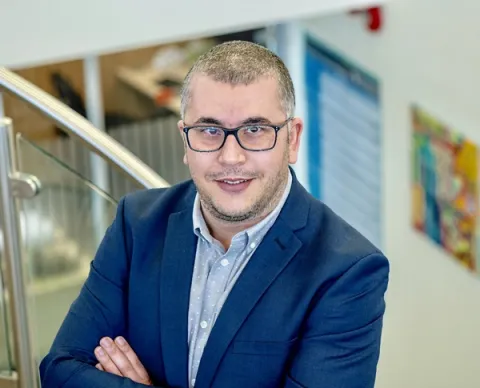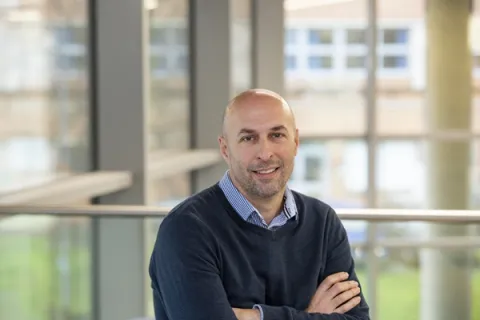Project overview
Polarised epithelial cell divisions represent a critical mechanism for correct partitioning of fate determinants and genomic material into the daughter cells during tissue homeostasis and morphogenesis, and their disruption can lead to severe developmental disorders and diseases such as cancer. Yet, the precise mechanisms coordinating cell polarity and correct mitotic spindle dynamics and chromosome segregation fidelity, to ensure proper epithelial integrity and differentiation remain ill defined. How dysregulation in these mechanisms contributes to malignant transformation and tumour heterogeneity also remains an open question in cancer research. We recently used a proteomic-based screen to identify a novel mitotic complex including the membrane-associated Annexin A1 (ANXA1) protein that interacts with and regulates cortical recruitment of the LGN spindle orientation complex in mitotic mammary epithelial cells. We found that disruption of ANXA1 function results in mitotic spindle misorientation and impaired cell-cell adhesion and genome instability, affecting the outcomes of cell division.
This project aims to perform a first set of studies investigating the direct functional relationship between ANXA1-expression-dependent defects in polarised cell divisions (including spindle assembly and orientation; chromosome alignment and segregation; centrosome dynamics), and tumour cell fate, behaviour and heterogeneity. This multidisciplinary project builds upon our collaboration with Professors Stephen Beers and Ramsey Cutress, where my lab will access the BeGIN cohort of over 200 ethically approved and well characterised human breast cancer tissue samples that include tissue microarrays (TMA) and full tissue sections. Through this collaboration, we will benefit from expertise in the use of innovative immunohistochemistry protocols and image analysis pipelines, guided by specialist pathologists who will help with data interpretation. We will develop and implement a multiplex immunolabelling pipeline in several sub-types of human breast cancer tissues from patients. The framework will allow to label for up to 10 markers to visualize at the same time ANXA1, centrosomes, chromosomes, cell-cell adhesion molecules, differentiation markers, proliferation, and apoptosis. Our work will lay the foundation for a more ambitious, collaborative project bringing together expertise in cell and molecular biology, cancer biology, physics, and mathematics, to investigate the causal relationship between ANXA1-mediated defects in cell divisions and tumour heterogeneity, and the underlying mechanisms.
This project aims to perform a first set of studies investigating the direct functional relationship between ANXA1-expression-dependent defects in polarised cell divisions (including spindle assembly and orientation; chromosome alignment and segregation; centrosome dynamics), and tumour cell fate, behaviour and heterogeneity. This multidisciplinary project builds upon our collaboration with Professors Stephen Beers and Ramsey Cutress, where my lab will access the BeGIN cohort of over 200 ethically approved and well characterised human breast cancer tissue samples that include tissue microarrays (TMA) and full tissue sections. Through this collaboration, we will benefit from expertise in the use of innovative immunohistochemistry protocols and image analysis pipelines, guided by specialist pathologists who will help with data interpretation. We will develop and implement a multiplex immunolabelling pipeline in several sub-types of human breast cancer tissues from patients. The framework will allow to label for up to 10 markers to visualize at the same time ANXA1, centrosomes, chromosomes, cell-cell adhesion molecules, differentiation markers, proliferation, and apoptosis. Our work will lay the foundation for a more ambitious, collaborative project bringing together expertise in cell and molecular biology, cancer biology, physics, and mathematics, to investigate the causal relationship between ANXA1-mediated defects in cell divisions and tumour heterogeneity, and the underlying mechanisms.


